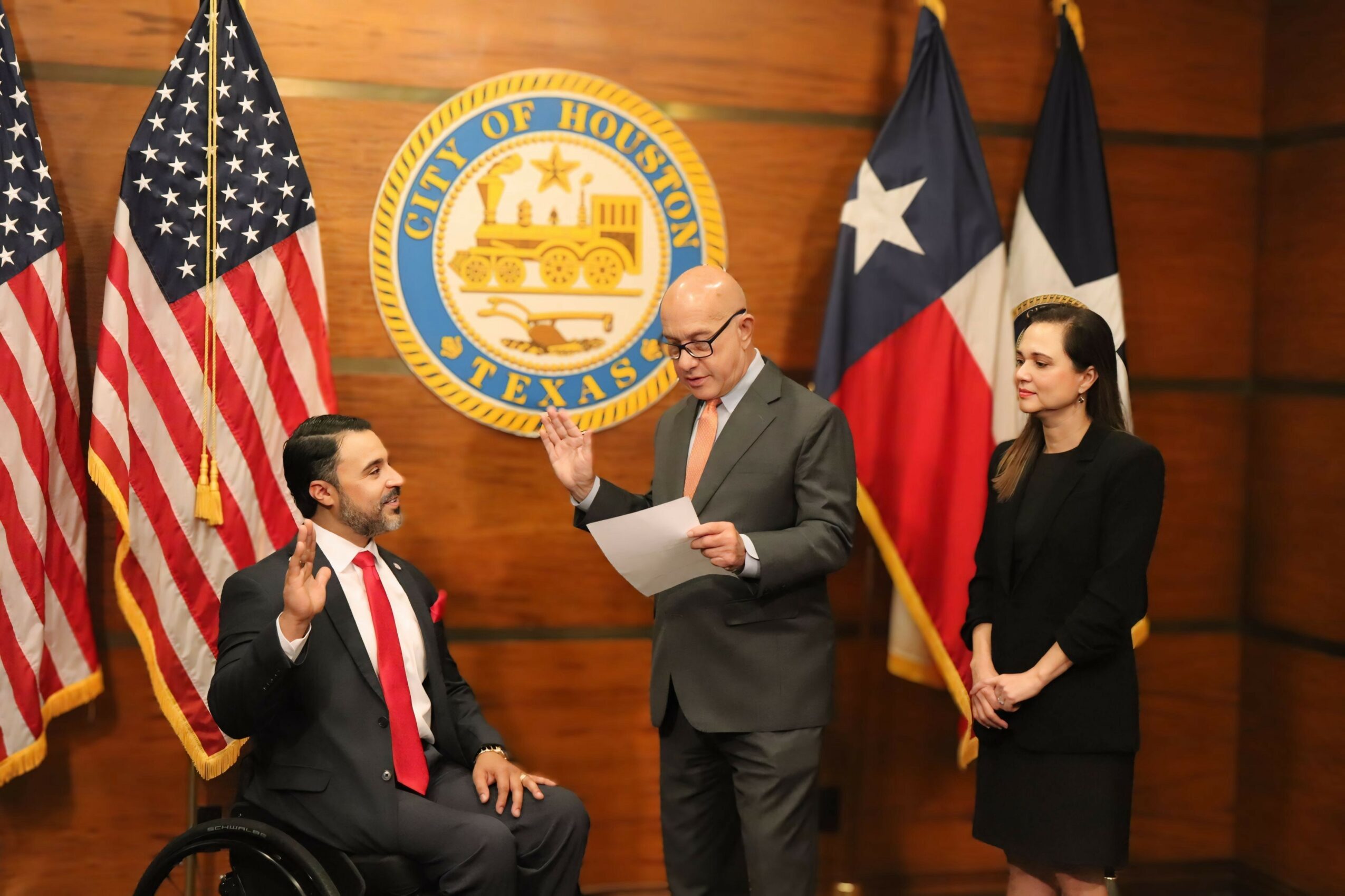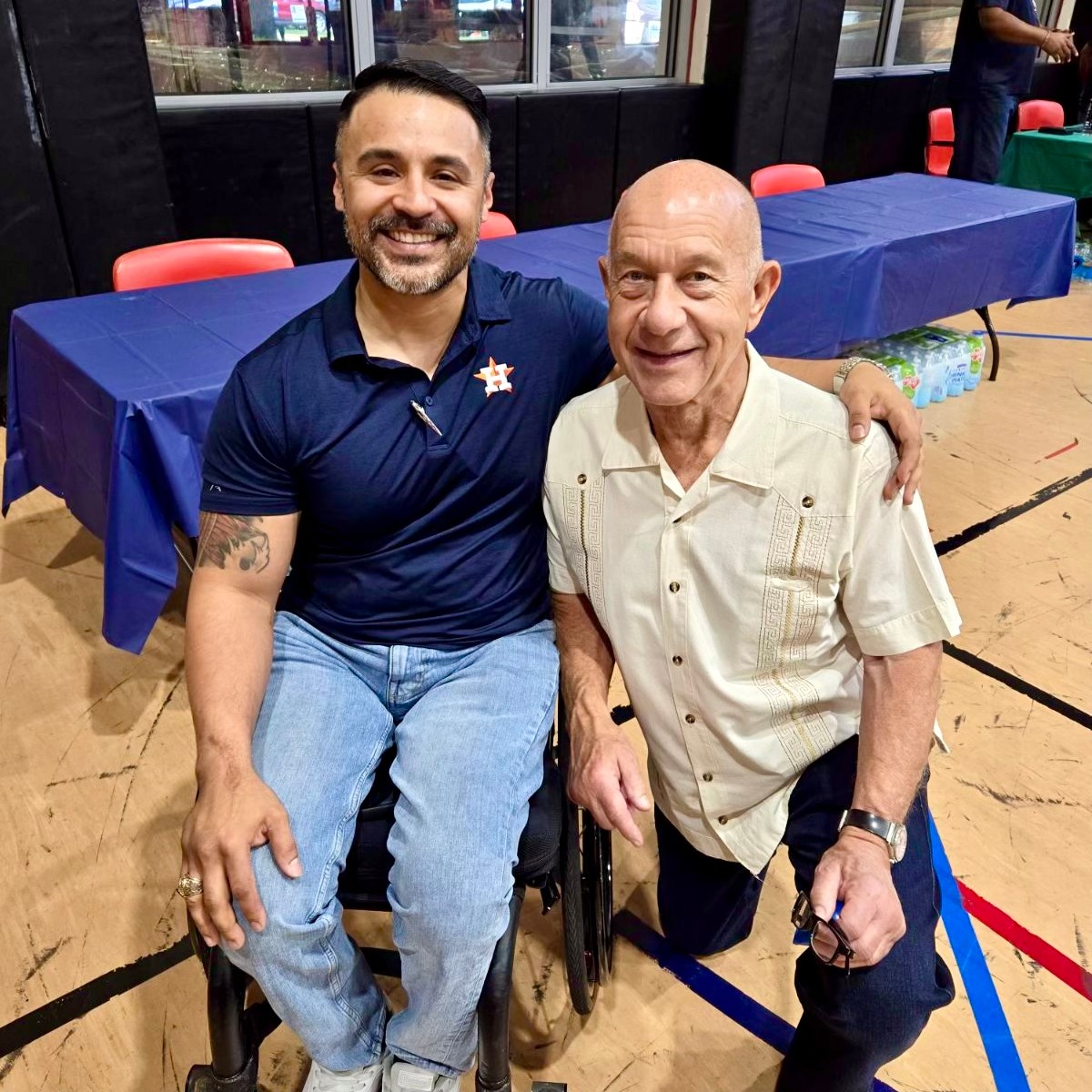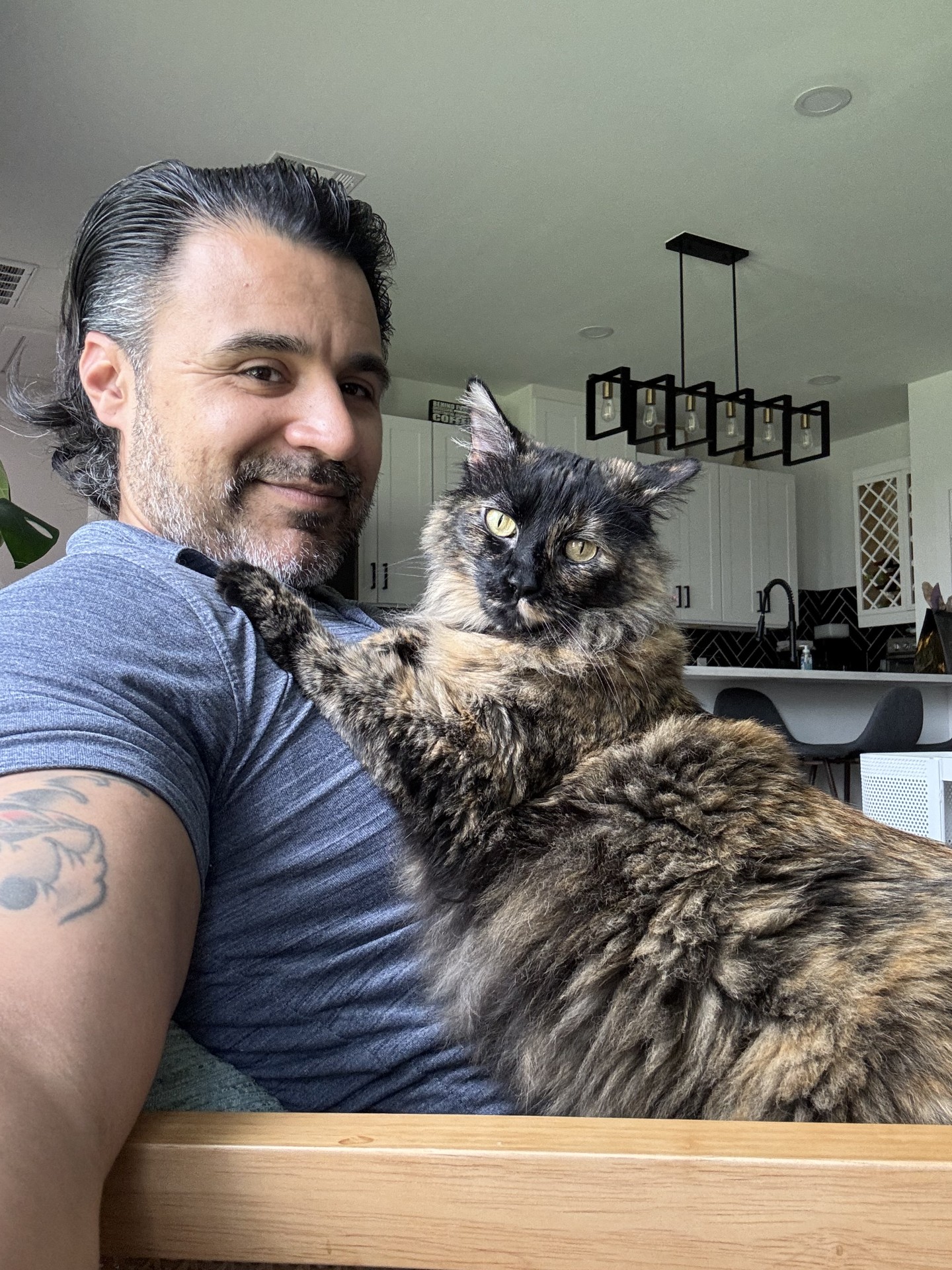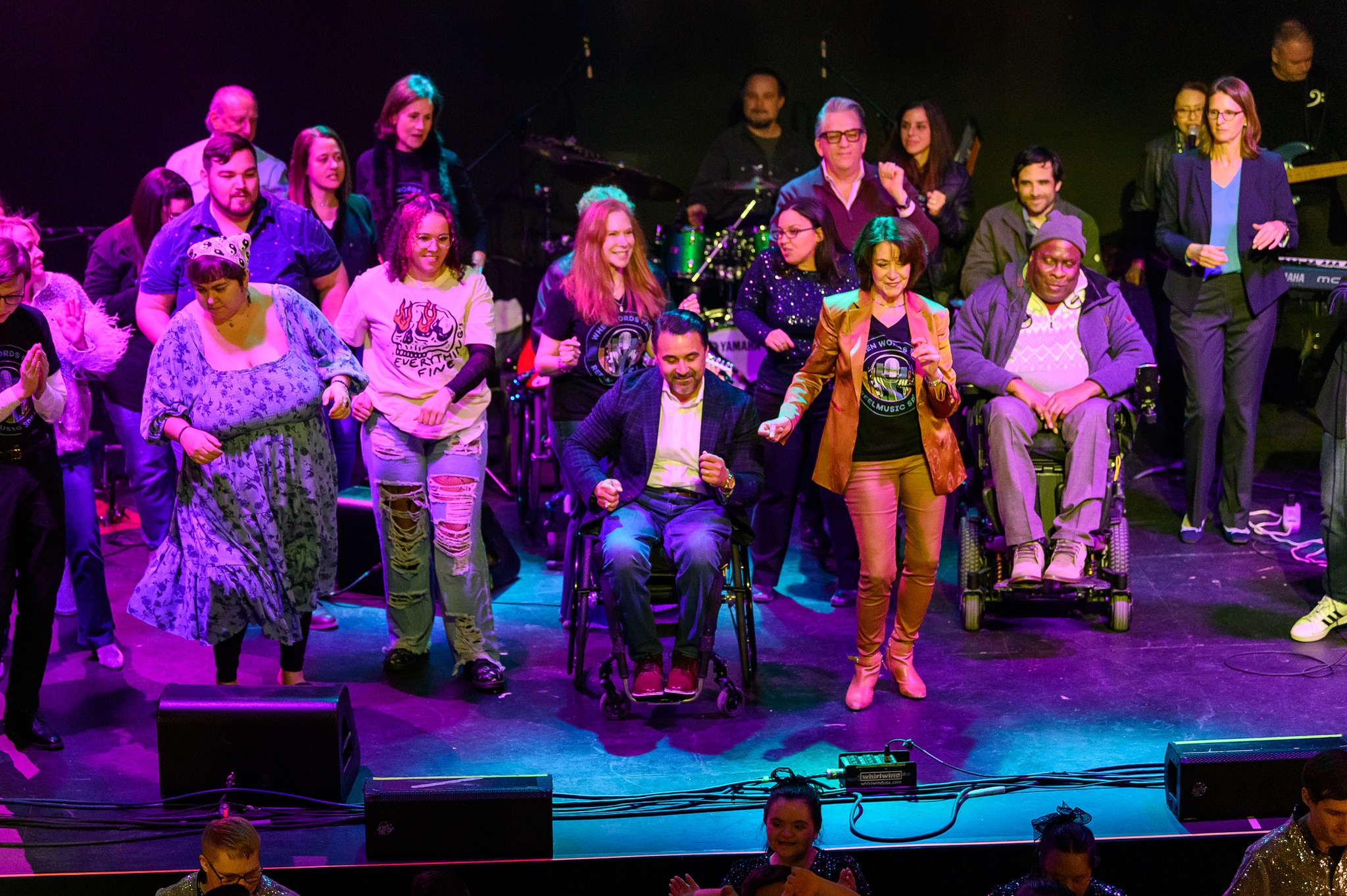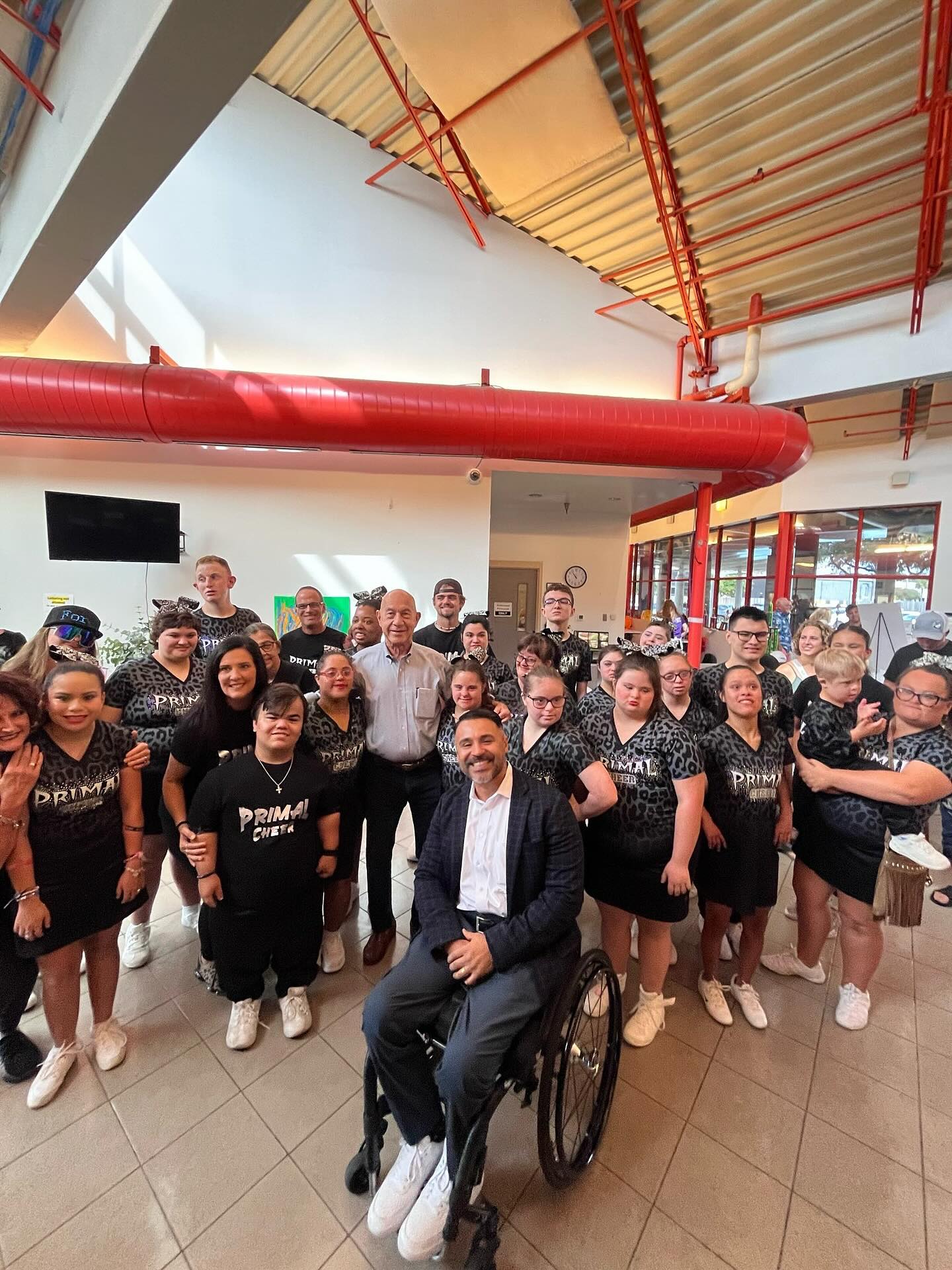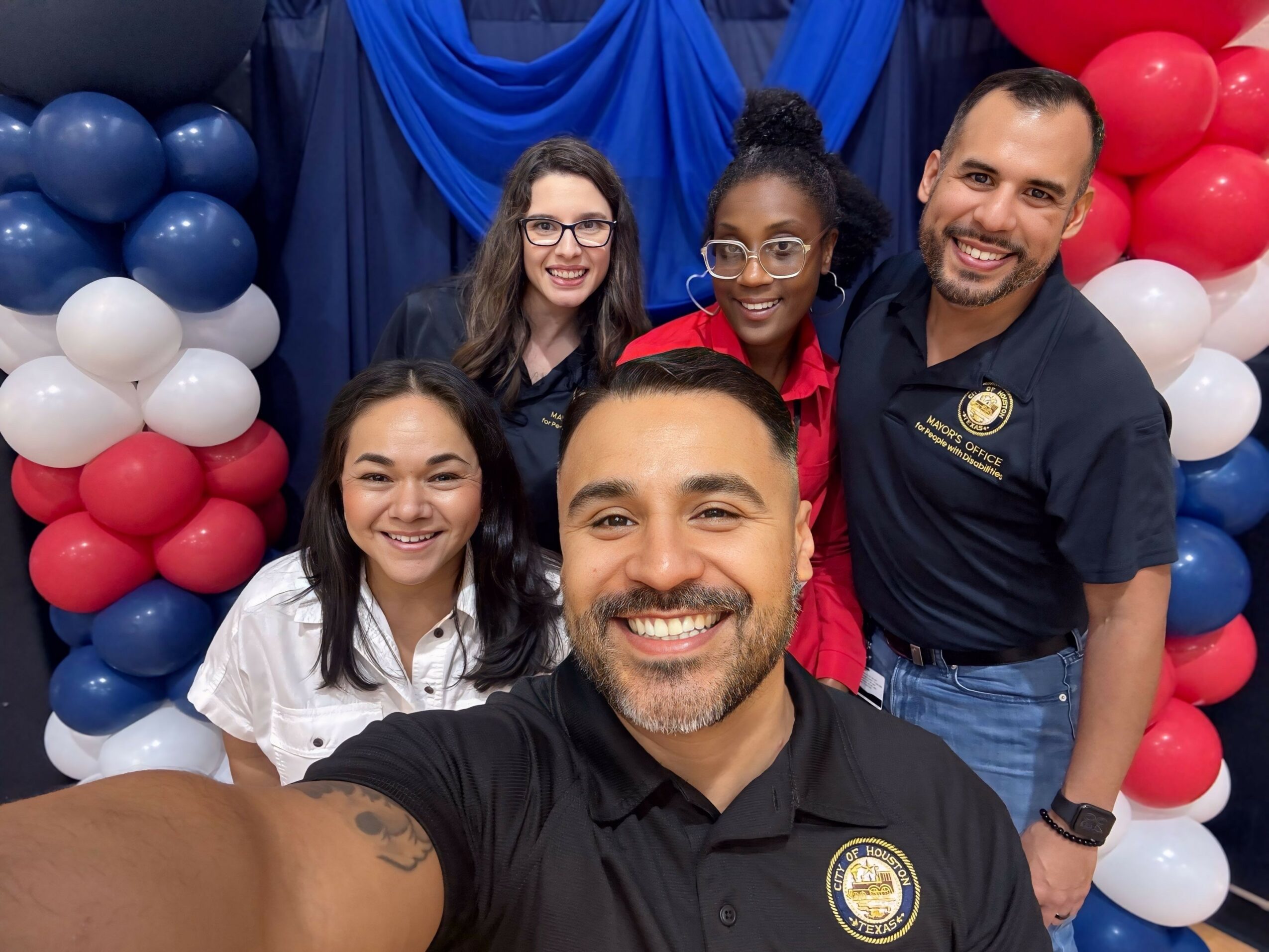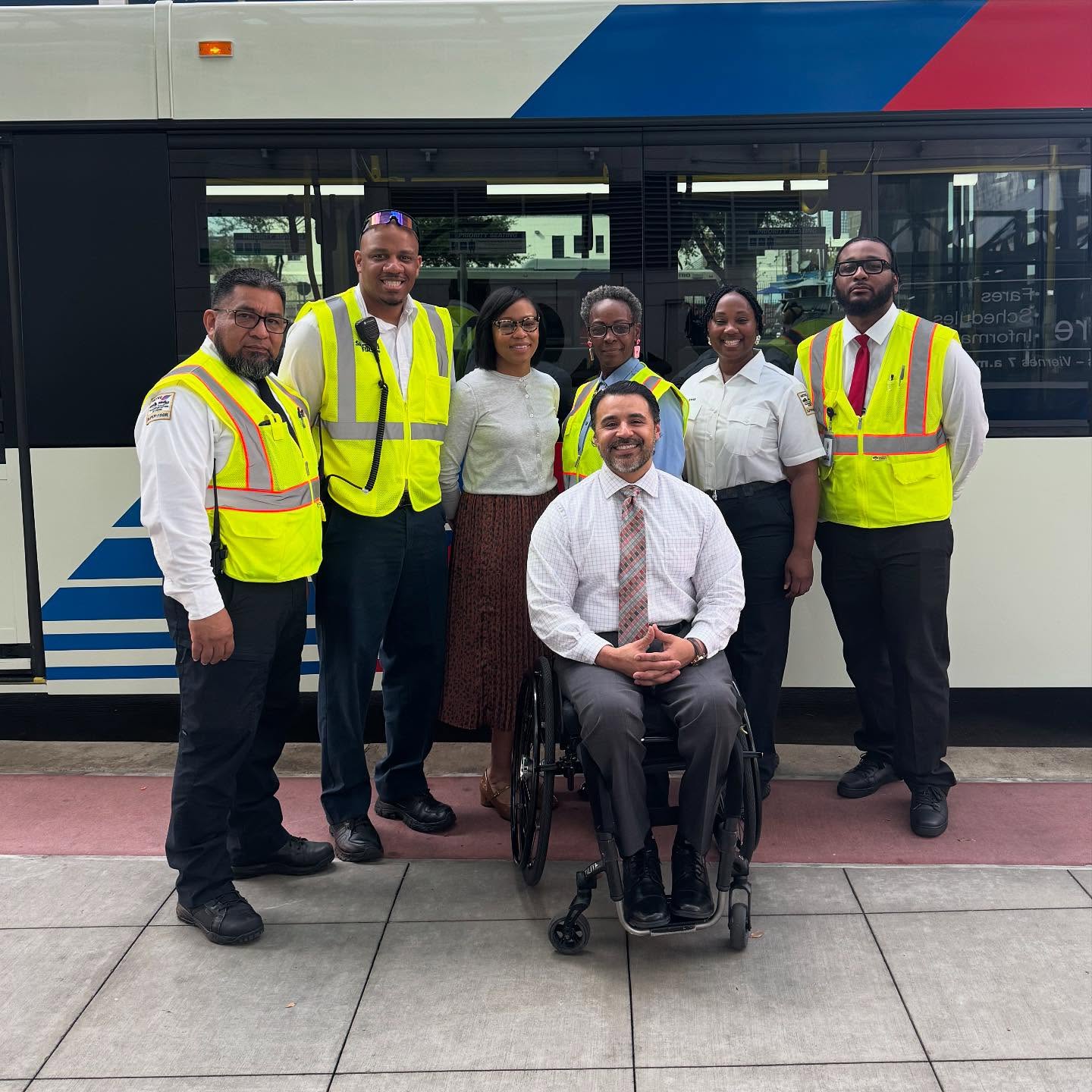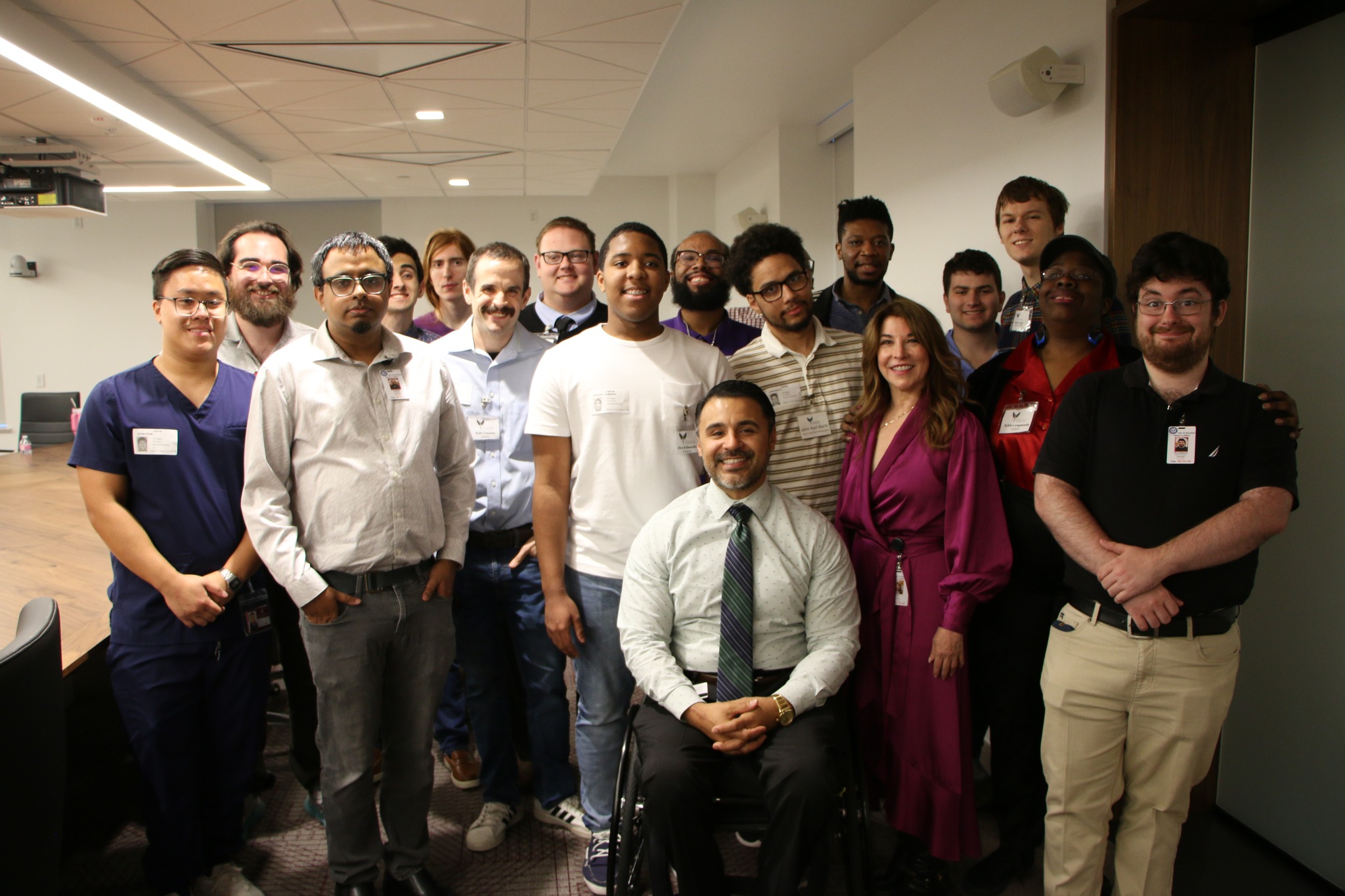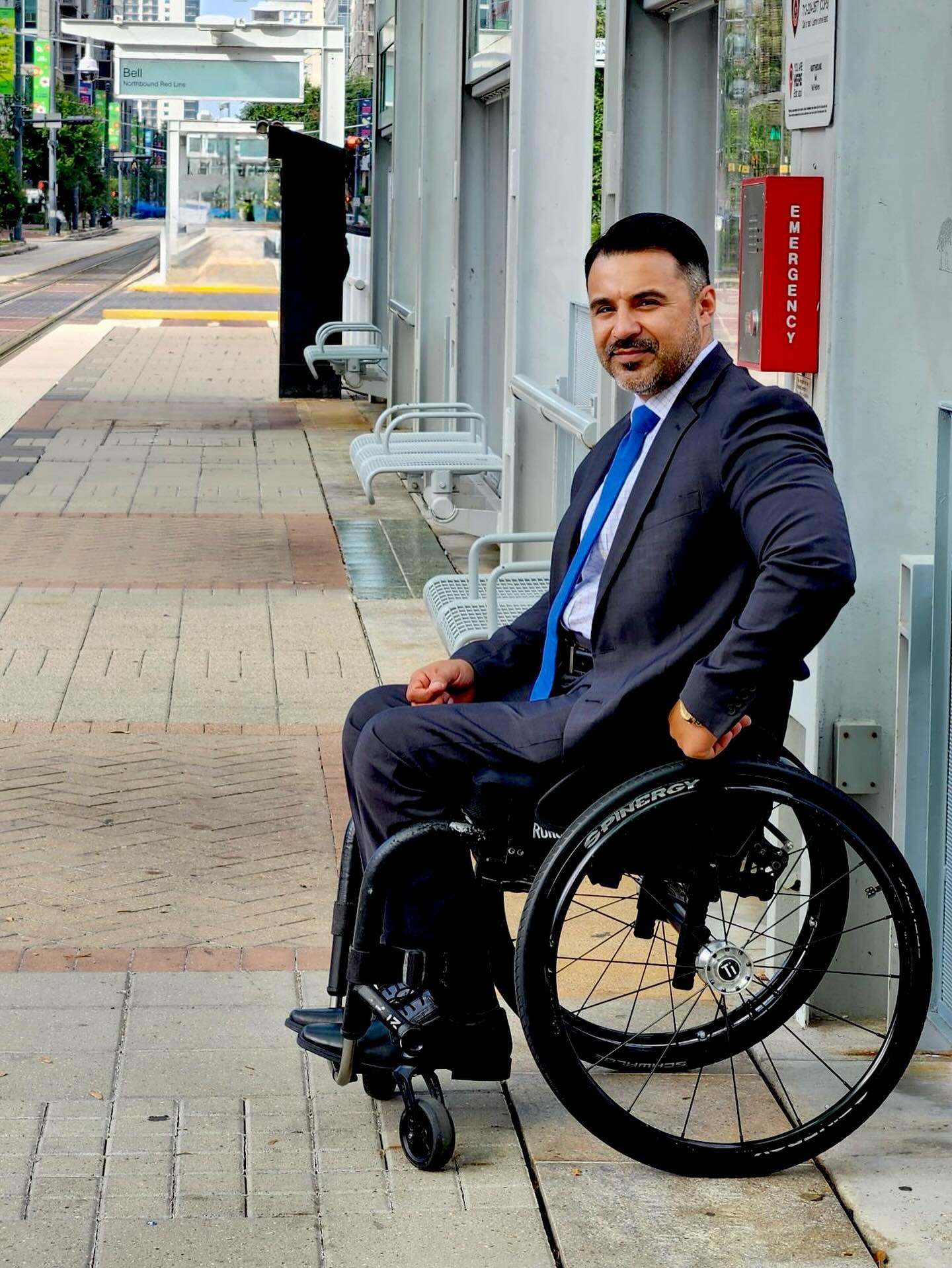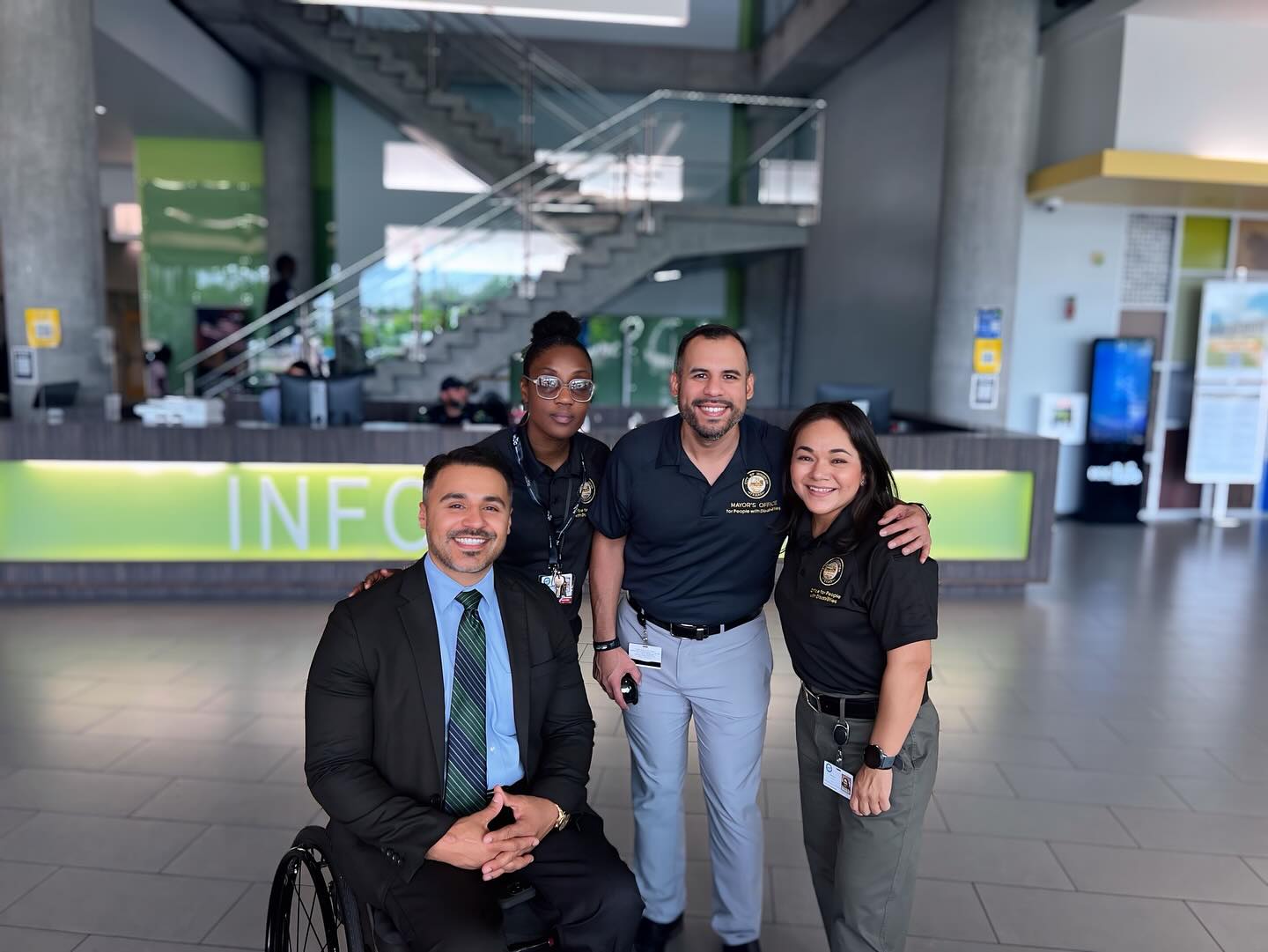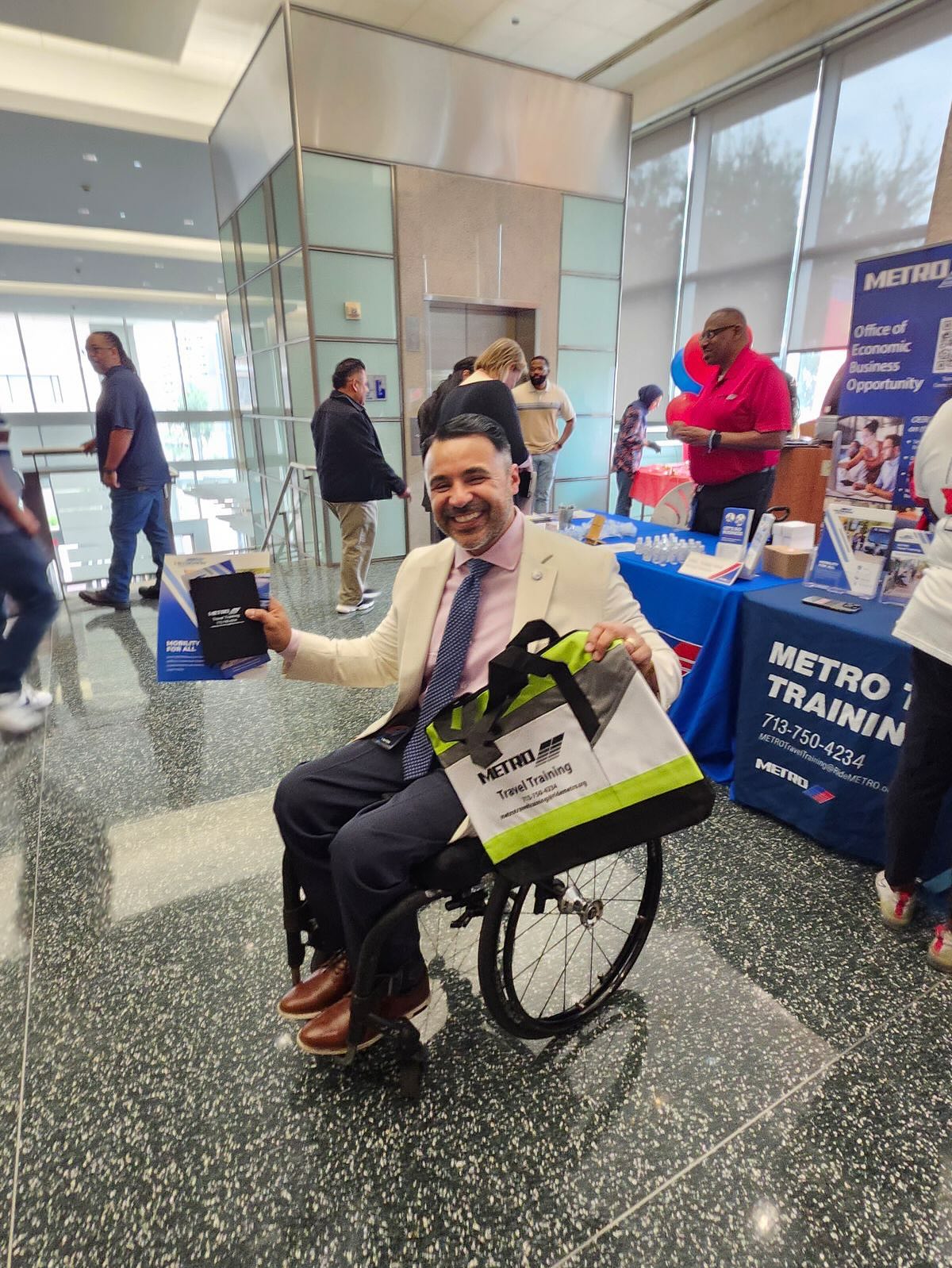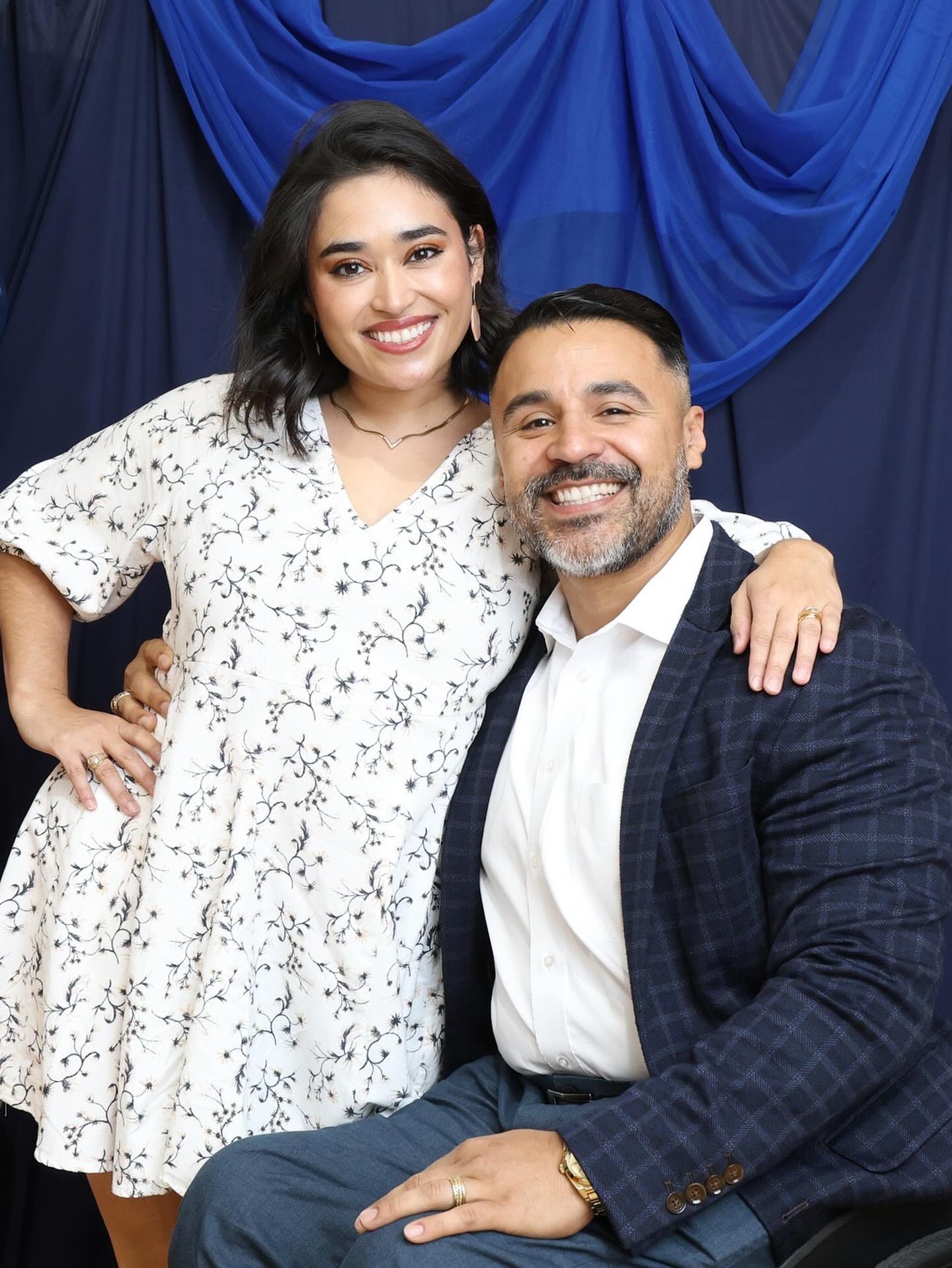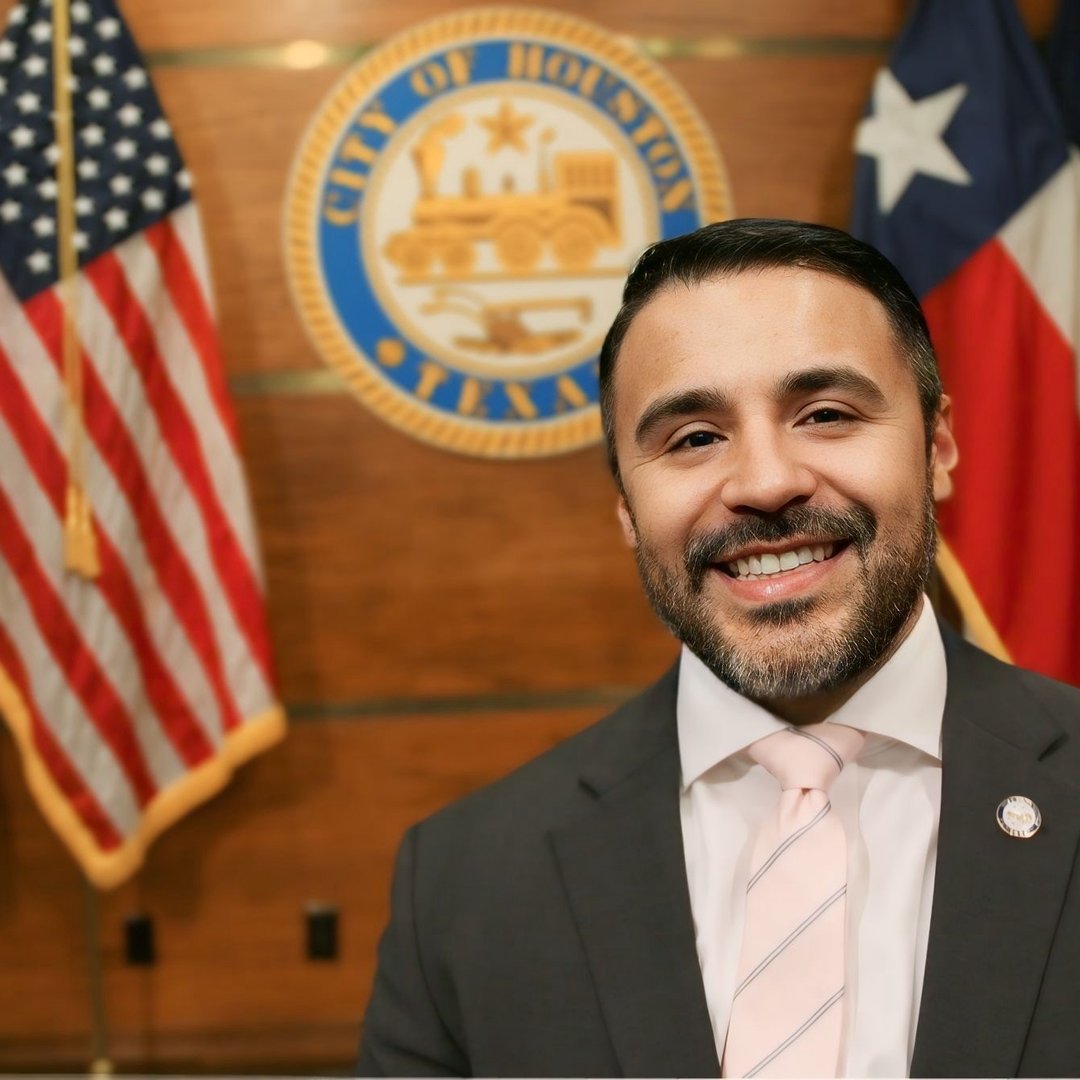

Angel Ponce shared their story and experiences with us recently and you can find our conversation below.
Angel, it’s always a pleasure to learn from you and your journey. Let’s start with a bit of a warmup: What do the first 90 minutes of your day look like?
I think it is safe to say that not everyone is a morning person, and most times I like to think of myself as not that person but when my alarm goes off at 4:30AM I mentally prepare myself to start my day. Most weekdays I begin my first 90 minutes by preparing my gym bag. Then I set up coffee to start brewing for my wife, Alexa. She loves the smell of coffee in the mornings, and I just love knowing that she wakes with a smile. Then I see and talk to my sweet tortie cat, “Gatita” and wish her a good day.
The 15-minute drive to the gym is usually in solitude. This is an opportunity for me to think positively in self-reflection and think critically on my self-improvement goals. Realistically speaking, most times I listen to podcasts that make me laugh or provide me with knowledge that is both useful and that I probably won’t ever use but at least I know I’ve learned something new.
As a teen I was in a military school. There I learned fundamental skills that I continue to use in my life today. One of those skills is discipline. When I was in military school we woke up every day at 5:00 AM and participated in exercise. This structure applied in me a set of behaviors that resulted in a structured environment. By the end of my first 90 minutes of my day I accumulate energy, and this helps me tackle the rest of the day.
Can you briefly introduce yourself and share what makes you or your brand unique?
I currently serve as the Director of the City of Houston’s Office for People with Disabilities. I have over 15 years of experience in disability advocacy and government services. I became a wheelchair user when I was 19 years old. I am now 40. This means that I have been a person with a disability longer than I have been a non-disabled person. Given this fact and my work experience I know firsthand the challenges faced by people with disabilities in navigating all aspects of public life. Most recently, I was appointed to the Houston METRO Board of Directors.
“As mayor, one of the most rewarding things I get to do is appoint dedicated and talented individuals who truly understand the needs of our community. I’m thrilled to nominate someone who will represent the disabled community on our transit system and bring a life story of resilience and determination that inspires us all,” said Mayor John Whitmire.
This statement by the mayor truly reminds me that both advocacy and service provision are services that should be guaranteed by city government. I believe in implementing programs that ensure the integration of all our residents, with or without disabilities. I go to work every day to ensure that every person or organization we talk to know that programs and services will be or are accessible to people living with disabilities. We also ensure that our city leadership understands the importance of equal participation and the full inclusion of all residents, especially those living with disabilities.
One of my most proud moments recently is the implementation of our city’s ADA self-evaluation and transition plan. Not only will this project help us as a city entity fulfil our legal obligations under title II of the ADA the plan will help us put systems in place that will ensure full and equal access for people living with disabilities. For me it’s not just about reducing risks, it’s about creating a city that is accessible for everyone.
Thanks for sharing that. Would love to go back in time and hear about how your past might have impacted who you are today. Who taught you the most about work?
The White Cane Safety Day is an annual celebration typically held in mid-October to recognize the achievements of people who are blind or have low vision. This recognition also helps raise awareness about the white cane as a tool of independence.
Jay Stitely served as the manager of Houston’s Office for People with Disabilities when I first joined the office back in 2014. Jay was a blind advocate and served the Houston community through his talents, skills, and personal experiences. At that time, as a new member of the office I had little to no knowledge. I was learning through Jay’s leadership.
At the conclusion of the 2015 White Cane Safety Day, Jay and I made our way to our vehicle. He got comfortable in the passenger seat, and I settled into the driver’s seat. My wheelchair laid unassembled in the back seat. As we drove away both of us were alarmed by a weird sound coming from the bottom of the vehicle. It sounded like we were dragging something. We pulled over a couple of blocks down the street on a busy one-way street downtown to take a look.
Given that I had unassembled the wheelchair in the back seat Jay decided to exit the vehicle to find out what the problem was. I was uncertain about the situation. Let’s think about this – he was blind, and traffic was heavy that day. Jay said to me, “Angel, you are going to serve as my eyes, and I will be the muscle.” I replied, “oh boy.” I opened the door on the driver’s side and stuck my head out to see underneath the vehicle. I could see the problem now; we dragged one of the large yellow cones used to reserve parking spaces. It was stuck under the vehicle. There I went giving him directions, and Jay was doing his best trying to reach the yellow cone. After a brief minute or two he finally grasps the cone, stood up, got back in the vehicle, and threw the yellow cone towards the back seat next to my wheelchair.
On this day I learned a couple of things. (1) clear communication is vital during intense and life-threatening situations. (2) The sharing of diverse skills between two or more individuals is key to the success of a task and of a team.
Jay Stiteley passed away on July 23, 2016, after a brief but intense battle with cancer. Thank you, Jay, for being an example in my life and for being my friend.
What did suffering teach you that success never could?
What you gain from success can always be taken away. What you learn from suffering is yours forever.
Next, maybe we can discuss some of your foundational philosophies and views? What’s a belief or project you’re committed to, no matter how long it takes?
There is a common believe in the world that several people living with disabilities and allies have in common with me. That is “nothing about us without us.” This statement means that any legislature, policies, or programs and services for people living with disabilities must be created with the direct involvement of people living with disabilities.
For example, when I am considering a new program for our community I reach out to disability led organizations or individuals for their input because I understand their lived experiences and that our allies possess unique insights into the needs and challenges of our community. This makes their perspective invaluable in creating policy and program development.
Implementing this believe in my work has really helped me elevate the status of the office and my credibility as an advocate and leader in the Houston disability space.
Thank you so much for all of your openness so far. Maybe we can close with a future oriented question. What do you understand deeply that most people don’t?
Understanding that as a human being you never truly know, nor can you understand what is going on in another person’s head or mind. This sounds like a complex problem, but we experience examples of this every day. For instance, have you ever been in a situation where you are sharing a story and the receiver end is hearing you but not really listening? I know I have been at fault for this, plenty of times.
While some people can find this disrespectful, often we don’t realize that there is more than meets the eye. Maybe it’s not that they don’t care to listen but there could be something else going on in their lives that is bothering them or distracting them.
What I have learned to understand is to pay close attention, look deeper into the situation, ask questions, and have the patience to listen better or simply repeat myself without judgement. I know that people pay attention to the simple fact that you want to understand. This may very well be the one thing that keeps them trying to continue to engage with you.
Contact Info:
- Website: https://www.houstontx.gov/disabilities/
- Instagram: https://www.instagram.com/whatsponcedoing/
- Facebook: https://www.facebook.com/supermanponce/
